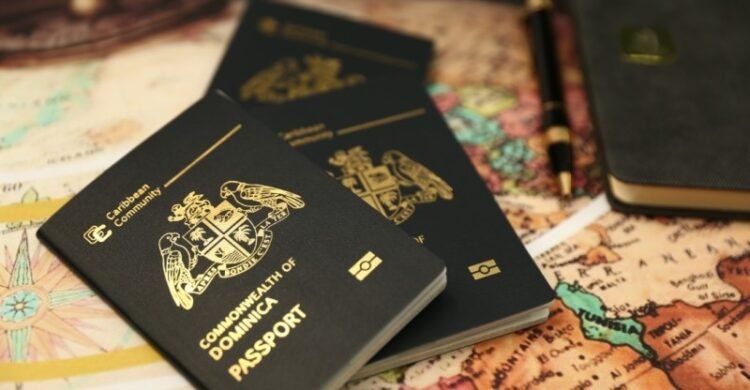In a detailed investigative report, Bloomberg has revealed that Hossein Shamkhani, the son of a senior advisor to Iran’s Supreme Leader, acquired citizenship in Dominica, a Caribbean nation, through an investment program.
Bloomberg, which has previously published extensive reports on Shamkhani’s oil and trade empire, claims that he and a group of Iranians, described as leading a covert commercial network involved in strategic oil and arms deals for Tehran and Moscow, used this citizenship program to obtain new passports.
The report, based on interviews with over 40 sources and a year-long investigation, states that Shamkhani and his associates also changed their names in Dominica to make identification more difficult.
Radio Farda cannot independently verify the claims made in Bloomberg’s report. According to the publication, members of Shamkhani’s network used their new identities to access financial markets worldwide, from Geneva and London to Dubai and Singapore, while concealing their Iranian origins.
Bloomberg reveals that Shamkhani operated in Dubai under the alias “Hector,” building connections with major oil companies, traders, and bankers.
The report further details that Hossein Shamkhani, after studying in Moscow and Beirut, returned to Iran and earned a master’s degree in business administration. Encouraged by his father, he entered the private sector, founding Admiral Trading Company with his brother Hassan.
Due to his father’s position and the global sanctions on Iran, Hossein sought citizenship in another country. He successfully obtained a Dominican passport through the investment program, which does not require residency in Dominica, with the entire process handled remotely by a private agent in Dubai.
According to Bloomberg, Shamkhani and several associates not only acquired Dominican passports but also changed their names to avoid detection. As global banks imposed stricter regulations, Shamkhani’s network used their Dominican identities to acquire additional passports, including from European countries like Malta and Cyprus.
Although the report does not explicitly confirm whether Hossein Shamkhani personally acquired citizenship in Malta or Cyprus, it notes that his team exploited such opportunities as a group. With these new identities, Shamkhani and his network bypassed restrictions and gained access to major international financial markets.
In addition to Shamkhani, the report identifies other figures, such as Alireza Derakhshan (known as “Captain D”), a collaborator with Milavous Group Ltd.; Mahdiar Zare Mojtahedi, an executive at Ocean Leonid Investments; and Hossein Ghorbanizadeh, a senior partner in the Golden Nest Group, as individuals who also obtained Dominican citizenship.
Bloomberg’s investigation uncovered documents showing Zare and Ghorbanizadeh registered as Dominican citizens in UK company records, while Derakhshan’s name appears in a Turkish business registry as a Dominican national. None of these records mention their Iranian nationality.
The report describes Shamkhani’s commercial empire as a significant global player in essential commodities over the past decade. Billions of dollars in oil revenues have flowed through his network, disappearing into a maze of offshore accounts, shell companies, and luxury properties.
However, Bloomberg also notes increasing challenges for Shamkhani’s empire in recent years. In 2020, Ali Shamkhani was sanctioned, and Admiral Trading came under greater scrutiny. The U.S. recently sanctioned around 12 ships connected to the network, prompting Shamkhani to withdraw substantial funds and invest in luxury real estate on exclusive Dubai islands.
According to Bloomberg, Dubai’s International Financial Centre has suspended several companies tied to Shamkhani’s network, and the U.S. Treasury Department has launched an investigation into one of his investment funds.
Sources cited by Bloomberg indicate that the U.S. Treasury has recently intensified sanctions against specific ships and companies linked to Shamkhani’s network.
These sanctions have allowed trusted regime players like Ali Shamkhani to exploit the situation, following a path similar to Babak Zanjani by selling Iran’s sanctioned oil and amassing enormous personal wealth.
In the coming weeks, a new U.S. president will take office, and it remains unclear what approach will be taken toward Iran.
On one hand, key appointees appear committed to continuing the “maximum pressure strategy” to deprive Iran of its revenue streams. On the other hand, Donald Trump, during his election campaign, frequently expressed interest in negotiating and reaching an agreement with Iranian officials.

 English
English



























































